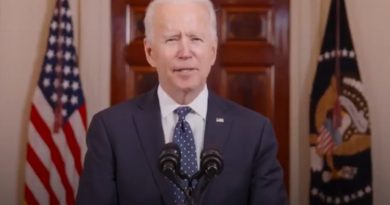Sanctions May Not Stop Putin, But They Will Certainly Hurt the Russian People
Hamzah Khan
Staff Writer
As the world watched in horror while Vladimir Putin launched his illegal and indefensible invasion of Ukraine, many immediately called for the harshest sanctions possible to be imposed on Putin’s regime. The United States and its allies showed remarkable unity in implementing comprehensive sanctions targeting key sectors of the Russian economy. According to Vox, the U.S. and Europe immediately sanctioned Putin and other Russian oligarchs by freezing their assets and confiscating properties belonging to individuals close to the Russian government.
The global community also removed Russian banks from the SWIFT banking communication system, a huge blow to the Russian financial sector, and the U.S. announced that it would ban all Russian energy imports. The Russian central bank was sanctioned as well, the first sanctioning of a a G-20 bank. The ban on Russian oil coupled with Germany’s cancellation of the Nord Stream 2 Pipeline are especially punishing to the petrostate’s economy and will have significant implications on global energy prices. The ruble has fallen to its lowest point ever, along with nearly $1 trillion worth of Russian assets; as a result the Russian economy is expected to contract 35 percent in the second quarter of 2022, reports Reuters.
The goal of these sanctions, according to the Biden administration, is to “impose severe costs on the Russian economy,” according to NBC News. But will these punishing sanctions really change Putin’s behavior? Recent history shows that American sanctions have not been effective at changing the behavior of certain authoritarian countries, but have had horrific impacts on civilian populations within those countries. While the scale of the sanctions on Russia is unprecedented, the U.S. has imposed severe sanctions on Afghanistan, North Korea Iran, Syria, and Venezuela in recent years and yielded pitiful results, according to the Cato Institute.
U.S. policymakers have largely adopted sanctions as an economic weapon and an alternative to military conflict, which they can use to coerce lower income countries. Under the Trump Administration, Iran continued to enrich uranium despite the “maximum pressure” campaign the president championed. The real effect on the Iranian people was quite dire, however, with many people including cancer patients unable to access life saving medications, according to Human Rights Watch. The sanctions currently imposed on Afghanistan against the Taliban government could kill more Afghans than the 20-year war that ended last August, according to the Center for Economic Policy and Research. U.S. sanctions were notorious for possibly killing nearly half a million Iraqi children in the ’90s as well, a price which Secretary of State Madeline Albright famously claimed was “worth paying”, yet did little to curb Saddam Hussein’s behavior, according to The Guardian.
Likewise, the severe comprehensive sanctions imposed on Russia may have similar effects on the Russian people. Inflation is skyrocketing and basic goods will become more expensive for average Russians as the ruble continues to drop, reports BBC News. American companies are abondoning Russia in droves, leaving many Russians unemployed as their economy is on the verge of collapse. Soaring gas prices around the world have also shown how sanctions are impacting people outside Russia. USA Today reports that Russia is also one of the world’s largest exporters of wheat, making up 17 percent of the world’s supply, and sanctions on this industry could cause food shortages around the world and in Russia.
While the use of sanctions has occurred for more than a century, their use has sometimes exacerbated conflicts rather than prevent them. According to Foreign Policy, economic sanctions were largely the policy of choice adopted by the League of Nations after the horrors of World War I. While the policy was initially successful at deterring smaller countries from going to war, sanctions against Italy and Germany were perceived as acts of war and incentivized the fascist states to rapidly begin expanding to lessen the effectiveness of sanctions. Likewise, U.S. sanctions on oil exports to Japan made attacking Pearl Harbor seem like a rational strategy.
Similarly, experts like International Relations scholar Paul Poast believe that sanctions on Russia will not stop Putin and may risk further antagonizing him. Previous sanctions on Putin did not stop him in 2014 and the sanctions being imposed today may be perceived as an act of war. Comprehensive sanctions that target civilian populations are not a humane alternative to war. Replacing bullets and bombs with blockades and banking sanctions can have the same, or arguably worse, impacts on civilians. If the only purpose of these sanctions is to bring Russia to its knees, it will not be Putin, but the millions of Russians who did not choose this war bearing the consequences.

